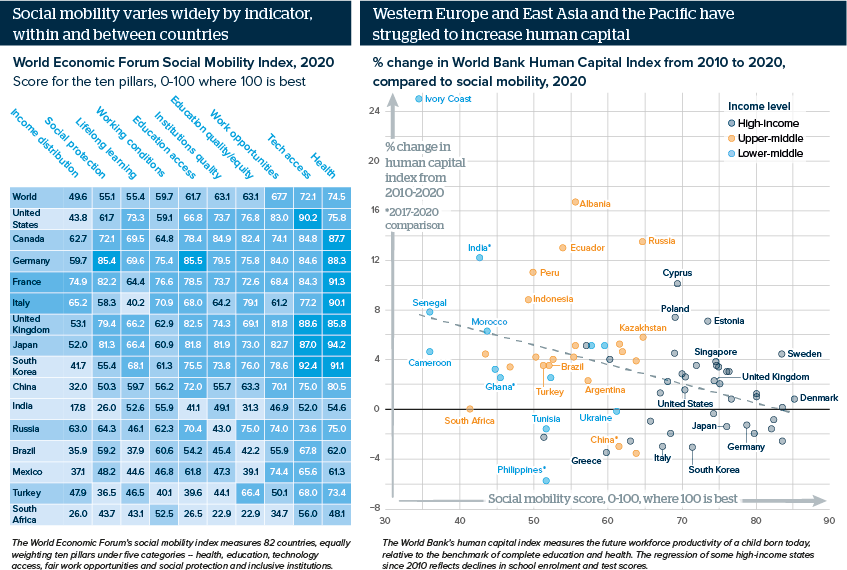Investing in people is key to a sustainable recovery
The pandemic has damaged human and social capital; both are key to economic prospects but under-recorded in GDP accounts
Source: World Bank, World Economic Forum
Outlook
The World Economic Forum (WEF) estimates that if a country raises its social mobility score by 10 points, it could raise its GDP growth by 40 basis points (e.g. 2.4% growth from 2.0%). The pandemic will widen inequalities of income, education and work opportunity within many countries. Already, according to the World Bank’s Human Capital Index, human capital had been declining in a number of major economies. The pandemic is likely to exacerbate the problem.
Boosting social and human capital requires increased investment in training, social security, and physical and digital infrastructure. Infrastructure features in the recovery programmes of some high-income states, but most countries face hard fiscal constraints.
Impacts
- After war, rebuilding physical capital is key. A pandemic disrupts health, education and jobs, making rebuilding human capital the key task.
- Better tools for gauging social and human capital would help policymakers to adopt more targeted measures and raise productivity.
- The more economic disruption a state faces, the less it may invest in social and human capital, creating a vicious spiral.
- Middle- and high-income states are focused on protecting jobs and paying social security, with less, if any, spent on reskilling.
